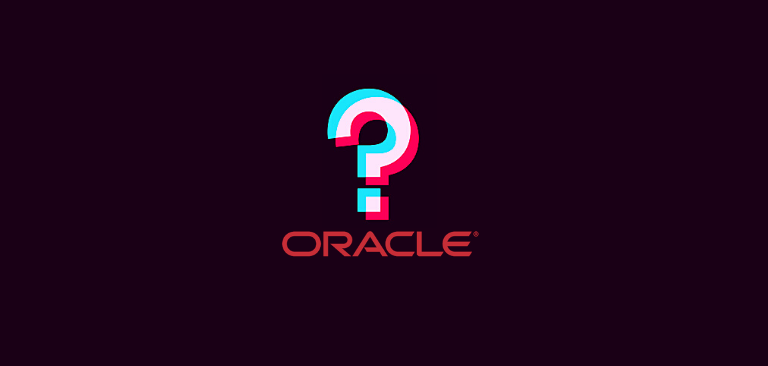In terms of Big Tech, as the saying goes, Oracle walked, so the likes of Google, Facebook, and Amazon could run.
But what, if any, sense would it make for Oracle to acquire TikTok – and how might that possible acquisition reflect on the nature of the viral video app, when it comes to free speech allowed on this super popular Chinese-owned platform? And would the highly controversial Section 230 of the US Communications Decency Act (CDA) see any substantive changes, making Oracle the unexpected free speech champion that the (tech) world needs?
Founded in 1977, Oracle is today one of those under-the-radar yet very powerful US tech behemoths that focus on the enterprise side of the business, selling database management and cloud systems as the core model of amassing vast amounts of money.
Even if it’s hardly a household name outside tech circles, Oracle is still doing very well for itself: in 2019, it reported a market value of $51.3 billion.
You can think of Oracle as IBM – another tech “dinosaur” – except without the excitement (again, in tech circles) of the latter’s recent multi-billion acquisition of Red Hat.
But there could be even bigger excitement in the wings. Reports are now saying that Oracle is linked to a possible purchase of TikTok. How come a seemingly feisty, AI-ruled for the new generation and highly controversial app like TikTok became Oracle’s newest target? But more importantly – would, if the deal went through, Oracle stand by its recent policy of funding free speech groups – to eventually introduce that policy to TikTok?
A CNBC report cites unnamed sources to suggest that Oracle is teaming up with a number of venture capitalists, like General Atlantic and Sequoia Capital, to acquire the TikTok operation from China’s ByteDance not only in the US, but also in most other “Five Eyes” markets – notably, in Canada, Australia, and New Zealand.
And who other than Microsoft – another storied tech “dinosaur” still alive and doing well today – would Oracle be up against?
According to CNBC, though, it’s more than the mere power of “old tech money” that might be at play here. Oracle co-founder and CEO Larry Ellison is said to be a supporter of President Donald Trump (who’s working hard to decouple the wildly popular TikTok app from its Chinese roots, for national security reasons, by means of a US acquisition.)
It’s hard to make heads or tales of the CNBC report – other than that it somehow manages to link Oracle to Trump to TikTok in multiple sentences, and make it look like clearly a bad thing.
What difference could Oracle acquisition make?
Given the fact that Oracle really is “the granddaddy of Big Tech” – it might sound counterintuitive to think that it had an interest to position itself as that corporation that works to right the wrongs that the industry has brought upon the world.
Yet, according to this article published by Bloomberg in February it may or may not be – Oracle was reported to be among those funding the Internet Accountability Project (IPA), in what’s described as a crusade against Google and Amazon.
To be clear, Oracle has a long-standing multi-billion dollar dispute around code and copyright law against Google, concerning the Java API that Google incorporates into its Android mobile OS. And there’s issues with Amazon as a competitor for a big Pentagon cloud contract, if the report is to be believed.
But amid all this, it was revealed that Oracle might, by virtue of supporting IPA, also stand behind what looks like the conservative group’s main policy issue: reform of Section 230, as an piece of legislation dating back to 1996, that 20+ plus years on continues to protect now super-powerful and influential tech companies from some legal liabilities. The IPA’s argument is that reforming Section 230 would help to promote free speech and reduce censorship on social media platforms – their suggestion being that platforms should act as communication tools and not editorialize and act as publishers.
IAP has several times spoken out in support of Senator Josh Hawley who has proposed a bill that will cause Big Tech companies to lose their legal immunity unless they can show the Federal Trade Commission that their moderation is politically neutral.
Would Oracle, if it purchased TikTok, still support groups that call for free speech on social media platforms? When it comes to both the TikTok acquisition and Oracle’s policy on Section 230 – only time will tell how that plays out. But if it’s any consolation, that time shouldn’t be long.








